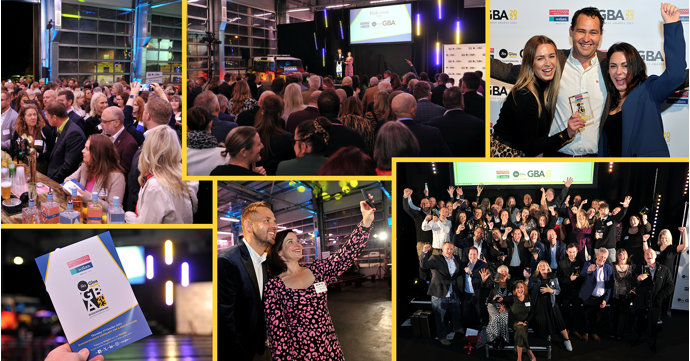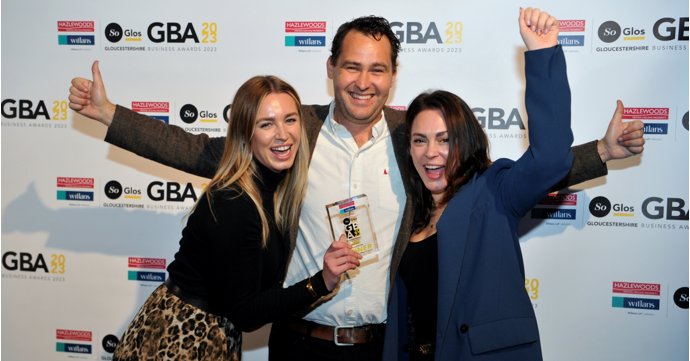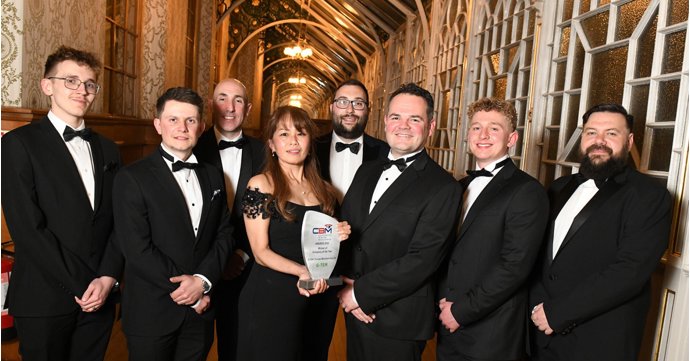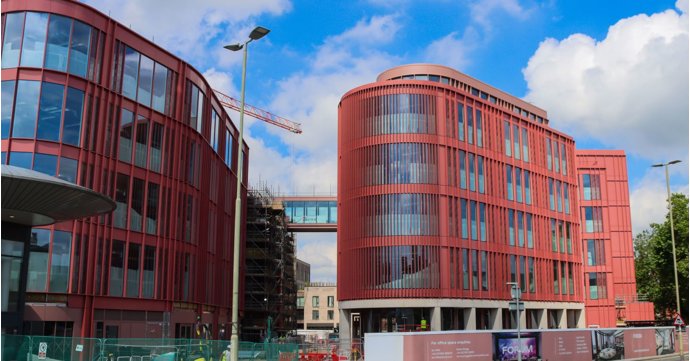Anyone who has ever taken on a building project that has gone smoothly — be that maintenance, renovation or development — will probably tell you that having an able project consultant who can steer it through to a successful conclusion is a godsend.
It is a challenging and multifaceted role, and one company that continues to grow in reputation is Six Property Consulting. Lee Creese, from the Cheltenham firm, gives SoGlos his inside take on just what a project consultant is, what makes a good one — and why they are vital for anyone undertaking almost any kind of building project.
Can you just explain what a traditional project consultant is?
I’d probably rephrase this as a ‘property and construction consultant’.
We specialise in maintaining, improving/enhancing and developing property to meet the prevailing and or future needs of the property owner or occupiers (maybe investors).
Some consultants specialise, others bring specialisms together under one roof, others are multi-skilled. We are, first and foremost, building surveyors and fit the latter.
Building surveyors, particularly, are known as the ‘jack of all trades’ of the industry, with the broadest of experience and knowledge. The traditional view of a building surveyor is that of someone in a tweed jacket (leather elbow patches) and cords letting you know you’ve got damp or subsidence, and generally ending your dream home purchase!
This has changed a lot. Nowadays, we are also project managers, designers, health and safety advisors, cost consultants, etc. That’s because of the broad knowledge and skills we hold. We use this broad skillset to create and deliver spaces and buildings that are compliant; safe, warm and dry; functional and inspiring.
Does Six Property Consulting have a different take on
what a property consultant is?
I’d like to think we are more forward thinking, moving away from the generation of ‘you’re a particular type of surveyor and you do this’ mentality. We are open-minded individuals, using skills and knowledge to make things happen effectively – whether we do it ourselves or getting someone integrated into the team who can.
I also encourage staff to not to box themselves and, instead, focus on being an expert in property and construction. This’ll take more time, as the wider industry and world isn’t ready for this — we like to have a group to belong to, don’t we?
Why hire a project consultant at all?
It depends on what time you have and how much risk you want to take! If you’ve got a day job and want to just enjoy the outcome, then employ a consultant. Property and construction can be a complex and messy business.
I think the cultural desire for ‘do it yourself’ is a contributor to the decision to appoint a consultant (the same applies to projects that would benefit from a trained specialist such as a baker, joiner, potter, singer, dancer or whatever). We’re all experts now, saw it on TikTok or whatever!
That said, if a project is truly so simple that it doesn’t need our input, we’d say so.
Is it crucial to do your homework first to ensure you hire the right project consultant?
Yes.
Most reputable property and construction experts carry a badge – typically, RICS, CIOB, RIBA, CIBSE, APM – to demonstrate competency and technical knowledge. So, if you approach an RICS surveyor, then its fair to expect them to be technically sound. But… that doesn’t necessarily make them good at delivering projects.
There are a lot of good surveyors out there who are technically able, but lack the soft skills and ability to communicate with their client and the project team.
The relationship between client and the consultant (and others inputting to a project) is also key. They must share values and vision. If they don’t then it will unravel sooner rather than later, or at least be a bumpy ride.
The most obvious mistake is to focus too much on fee (price), there is a lot of truth in ‘you get what you pay for’! And you can’t put a price on all that time you spend sorting out the mess associated with wrong person, wrong project or wrong time.
What would
happen if a new client approached Six Property Consulting about a project – what would the process
be from start to finish?
We’ll always do some research into who they are, their values, aspirations and challenges – this could be through simple conversation. That will tell us where they want/need to be. Sometimes a ‘lay’ client will know what they want, but not how to get there or possibly not appreciate the opportunities there are on the journey. We’ll tease that out.
We can then frame the brief and offer a tailored service to achieve the objective/s. We always look to meet in person, things like phone or face calls, emails, etc are great at a surface level, but they don’t get beyond that – which is often where the true intent is. We try to avoid generic offers where it may not realise the best outcome.
We are in an industry that, sadly, sees a lot of generic approaches or superficial offers that get over the line on fee alone, and that leads to avoidable discontent and stress through the life of a project. This rounds the circle of the project team being clear on what we are doing, how, why and when.
Have you seen projects go wrong because the wrong project consultant was hired?
I’ve seen projects fail because the client brief has not been properly set or challenged – be it because someone in the team won’t listen or the expectation is misplaced, for whatever reason. It may be that the budget set by the client doesn’t fit the desired output or they want something for nothing, in extreme cases.
In instances like this, the projects are doomed to fail or disappoint, at least. We always have an honest discussion at the outset. It may be the project can be ‘rephrased’ to make it fit another way (or might just need more time).
What should someone look for when hiring the right property consultant?
Six has grown due to referrals and we like to think this is because we deliver what we say we will. A great consultant will also be able to read between the lines to interpret what a client wants/needs and manage their expectations with what is achievable.
It's a cliché but communication is essential — clear, honest and regular communication is what makes relationships work. Technology is making us all more insular, so this is becoming more of a challenge but to communicate clearly is to know what is expected on all sides.
Can you give an example of how Six Property Consulting has helped a project achieve its goals, overcome potential pitfalls and arrive on
budget?
We do this all the time — it’s why we get appointed!
We deliver a lot of work for schools and academies that don’t have enough money (or time) to do everything that is necessary to keep their properties compliant, safe, warm, dry and inspiring. We assess their portfolios from scratch and work with them to create achievable long-term strategies and goals.
We then tease out and target the important stuff (compliance, safe, warm and dry) whilst freeing space to create properties that support learning and teaching in more innovative and inspiring environments — if we can achieve both at the same time — and we have — then we will.




















